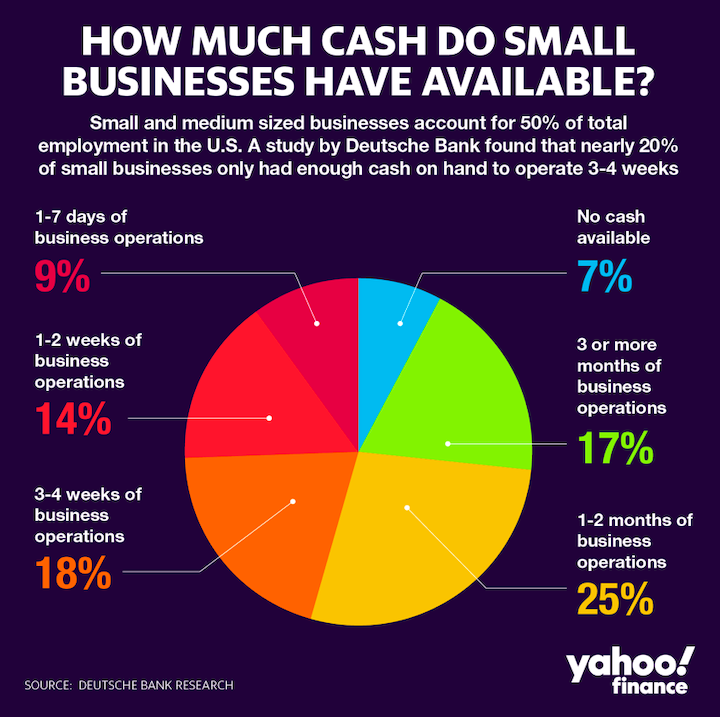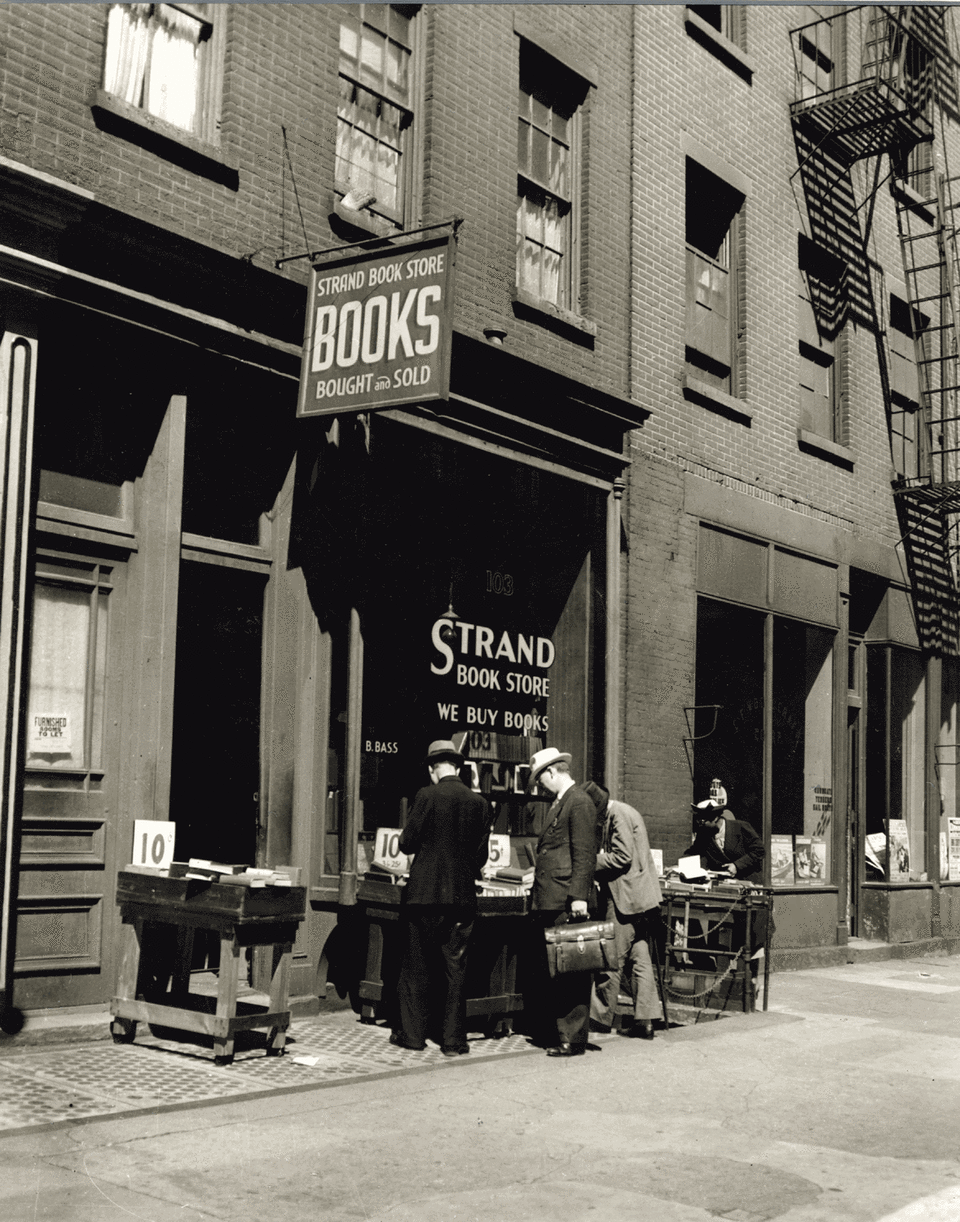Small businesses operate in limbo as economies begin to reopen
The Strand Book Store in New York City has stood as a source of pride for the Bass family for 93 years. With its famous slogan “18 Miles of Books,” the Manhattan shop has weathered the Great Depression, survived 9-11, and gone to battle with Amazon (AMZN) — all without a single layoff.
That all changed in March, when owner Nancy Bass Wyden, the granddaughter of founder Benjamin Bass, made the painful decision to cut nearly 200 jobs because of the coronavirus.
“We shut everything down. We shut our store down, we shut our website down, we shut our warehouses down, because we were very concerned about the safety of our employees and the customers,” Wyden told Yahoo Finance. “We went from over 200 employees to 12 employees to conserve the payroll.”
More than two months later, the Strand is still in limbo: A little more certain about its next few months with loans secured through the government’s Paycheck Protection Program (PPP), but uncertain about its long term viability, given business lost from a sudden economic shock.

The store partnered with a third party seller to revive its online business, but Wyden worries if health concerns will trump the bookstore experience when she reopens.
“There's probably going to be a mandate on how many people can be on each floor, how many people can come to events, having to distance people six feet apart ... everybody's going to wear a mask,” Wyden said. “I wonder about those components because people love to come in the store and just get lost in the stacks, and they love to browse, and I just worry is that going to get in the way of people having that freedom to browse here as long as they want to.”
Wyden’s concerns mirror those of small businesses across the country. As states lift stay-at-home restrictions allowing some stores to reopen, business owners are assessing the cost benefits of drastically reduced traffic with their ability to conduct limited activity.

‘Teetering on the edge of bankruptcy’
The economic pressures are magnified for small businesses, which account for 50% of total employment in the U.S. A recent study by Deutsche Bank found that one quarter of small businesses only had enough cash on hand to operate for one to two more months, while 7% said they had no liquidity.
“Many [small businesses] are in sectors that require face to face interactions with consumers. Many of them have a hard time getting credit to tie them over the types of liquidity problems they're facing now,” said Jason Furman, who served as chair of the Council of Economic Advisers under President Obama. “There aren't mechanisms like Chapter 11 bankruptcy that work particularly well that would help a small business restructure, shed some of its debt and continue operating and moving forward.”
The PPP, established by Congress back in March, set aside $660 billion in SBA loans to help small businesses make payroll for eight weeks. But larger, publicly traded companies like Shake Shack (SHAK) and Ruth’s Chris Steakhouse (RUTH) took advantage of carve-outs for the hotel and restaurant industry to secure $1.52 billion. Lawmakers have raised concerns about the lack of transparency in the program, with businesses most in need of the cash being left out.
“I think the PPP was misconceived. Many businesses are getting a windfall from it, where you know there are profits for their owners, but it won’t ultimately help their workers,” said Furman. “Many of the businesses getting those loans and effectively those grants would have continued anyway. And then if you're teetering on the edge of bankruptcy, just covering two months of payroll probably isn't enough for you and you still may go bankrupt.”
‘We have no idea what to expect’
Brothers Paul and Pat Ryan, who own four restaurants in the Philadelphia area including Smokey Joe’s, offer a rare example of hope. While social distancing restrictions slashed revenue by 98% in the initial weeks of the pandemic, the third-generation business owners say they can comfortably stay afloat, in part because they own the real estate in three of their locations, eliminating rent costs. PPP loans have also helped, though neither wanted to disclose the amount of loans they were approved for.
Still, Paul Ryan says the economic challenges brought on by the pandemic are unlike any his faced by previous generations, including his grandfather who experienced the Spanish Flu. He expects his restaurants to operate at half their capacity, even after restrictions are lifted.
“Everyone’s trying to practice social distancing, but I don't know how you can do that in a restaurant setting. I mean, you can make the seats further apart, but people have to walk back and forth. The waiters have to walk back and forth,” said Paul Ryan. “We've been shocked with everything that the government's been doing so far, so we have no idea what to expect.”
Wyden says she hopes to eventually hire Strand employees back. But she’s also realistic about her economic prospects. Regardless of how slowly her business recovers, she says closing is not an option.
“My lifeblood is to keep the store going. I just love books, that's my passion,” Wyden said. “I have to get the cash flow going, it's got to make some kind of sense. But really, this is my mission, to keep the strand going for, for another 93 years.”
Akiko Fujita is an anchor and reporter for Yahoo Finance. Follow her on Twitter @AkikoFujita

 Yahoo Finance
Yahoo Finance 